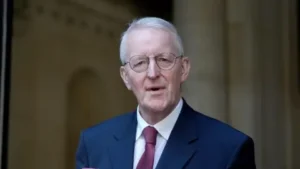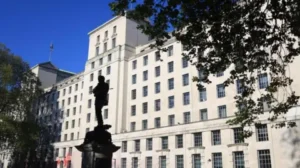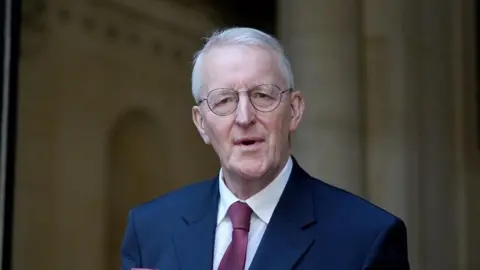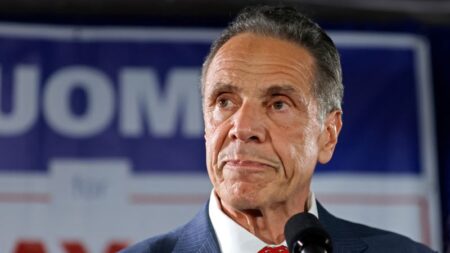In a recent parliamentary debate, Hilary Benn, the Secretary of State for Northern Ireland, vocally criticized the Conservative government for what he labeled “false promises” made to veterans regarding the controversial Legacy Act. This act has stirred considerable contention, especially as it matters significantly to not just veterans, but also to their families and those affected by the violence during the Troubles in Northern Ireland. Benn’s remarks came during a lengthy three-hour session in Parliament that spotlighted the ongoing issues related to the legacy of past conflicts, with several military veterans present for the discussion.
The contentious Legacy Act, introduced by the Conservative Party, imposed a ban on inquests and civil actions related to violent incidents of the Troubles, effectively halting any legal proceedings connected to these events. A particularly controversial aspect of this legislation involved the provision of conditional amnesty for individuals suspected of committing Troubles-related crimes in exchange for their cooperation with a new body intended for information retrieval, which has since been deemed unlawful.
Currently, the Labour Party is pursuing the repeal of this act, although it has encountered backlash, particularly from veterans who fear that repealing the law might lead to renewed prosecutions against them. In his statements in Westminster, Benn highlighted that as many as 202 live inquiries into the killings of armed forces members have been stagnated since May 2024 due to the Legacy Act. Moreover, there are 23 inquiries involving veterans that have also been halted, which he argues demonstrates the act’s far-reaching detrimental impact.
The debate around the Legacy Act was further intensified by a petition that garnered over 170,000 signatures. This petition urged Labour to ensure protections for veterans concerning prosecutions linked to Troubles-related incidents. Benn sympathized with military families who are still seeking accountability and answers regarding their loved ones’ deaths and emphasized that the government is actively engaging with veterans and their families to develop legislation that offers improved protections.
The response from Conservative MP and Shadow Armed Forces Minister Mark Francois was stark. He denounced the government’s approach as “two-tier justice at its worst,” raising concerns that many veterans now live with heightened anxiety about potential legal repercussions related to their service. Francois characterized this situation as akin to a “sword of Damocles” looming over these individuals.
Looking towards the views of veterans themselves, David Johnstone, the Veterans Commissioner, articulated that the initial surge of support for the petition, with 100,000 signatures in just one week, illustrates the widespread frustration and concerns felt by veterans across the United Kingdom. He noted the struggle many have in reconciling their military service with the current government’s handling of legacy issues, emphasizing that veterans are often overlooked in discussions regarding the Troubles, even now, decades after the armed conflict.
The Democratic Unionist Party (DUP) leader Gavin Robinson accused the government of attempting to “rewrite the history of the past,” highlighting the necessity of protecting those who served to safeguard the community. He advocated for a balanced approach that honors the sacrifices made by veterans. Similarly, other political figures like Robin Swann of the Ulster Unionist Party condemned the divisive rhetoric during the debate and stressed the need for a comprehensive resolution that addresses the rights and concerns of those who served in the armed forces.
Hundreds of veterans protested at Westminster against Labour’s proposals, voicing their fears that changes could lead to increased prosecutions. Veterans like Geoff Butler and Glen Espie articulated their discontent with the government’s actions, asserting that the struggles and experiences they went through are often misunderstood by those in power today.
Amidst this turmoil is the backdrop of the Northern Ireland Troubles (Legacy and Reconciliation) Act, passed by the Conservative government in 2023. It faced opposition from multiple corners including Labour, various political parties from Northern Ireland, and victims’ advocacy groups. This act established a new legacy body, the ICRIR, to oversee all cases concerning the Troubles. However, significant provisions of this act were quickly challenged in court, leading to further complications regarding its implementation and adherence to human rights standards.
Benn’s call for dialogue with the veterans’ community signals his commitment to crafting a legislative strategy that respects the complex needs and histories of those involved, while also attempting to rectify the perceived injustices of the past. The landscape remains fraught with challenges as the Labour Party navigates the repeal process amidst vocal opposition from both veterans and various political factions, indicating the ongoing struggle for resolution and understanding surrounding the legacy of the Troubles in Northern Ireland.











